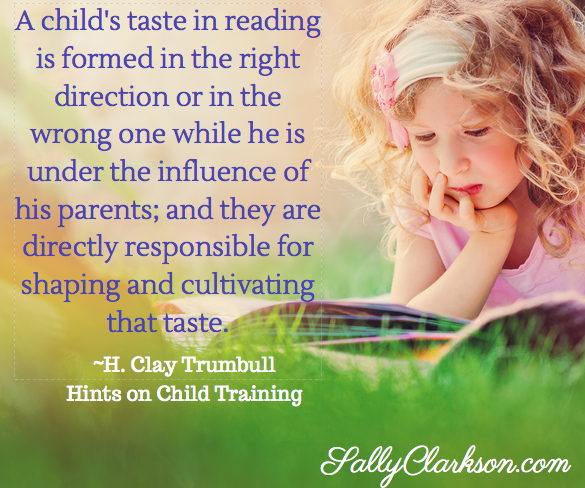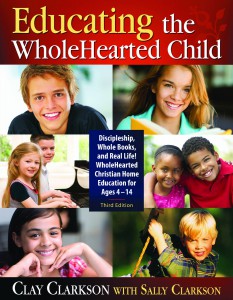 Sitting by the fire, squished up 5 deep on the couch, we all shared souls, hearts aflame and minds engaged in hundreds of captivating stories over the years. My daughter, Sarah, who is studying in Oxford, wrote 2 books about our experience as a family. (Caught up in a Story (aff) and Read for the Heart)
Sitting by the fire, squished up 5 deep on the couch, we all shared souls, hearts aflame and minds engaged in hundreds of captivating stories over the years. My daughter, Sarah, who is studying in Oxford, wrote 2 books about our experience as a family. (Caught up in a Story (aff) and Read for the Heart)
Many years ago, I read every article I could about how to form the minds of children, how to cultivate genius. Every article I read said to simply read to children every day. And so, every day, we shared time together reading God's word, discussing the truths of His character, taking in His stories. Then, each day, we read and read and read.
Many have asked me what special focus I had, what curriculum I used to prepare children who would be accepted into the top universities in the world--Yale, Oxford, Cambridge, St. Andrews, etc. This was my secret. I read to them almost every day of their lives, engaged their little minds in ideas and encouraged them to discuss what they had read. Then, often, I would have them write a story or poem or ideas of what they had learned. That is my secret.
And now, the thing I miss the most is our reading aloud because I became educated as I read to my children. Even though I had a degree from a university, I did not truly begin to become educated until I read with my children and learned so much of what I had never learned.
With so little time in a lifetime to read so many books, there is no time to waste on mediocre or meaningless books. This truth is even more important during the brief years of childhood, when the spirit and mind are being shaped and appetites are being established. Older teens and adults will need to read a wide variety of literature, but childhood is the time to feed developing hearts with the best of literature that will create a high standard of goodness and godliness for wider reading later in life. Saturate their minds with good books and avoid teaser books that would dilute the standard of goodness. Here are some qualities that help define a "good book" for your children.
Ageless: The story and/or illustrations are appealing to both children and adults. The book possesses a distinctive verbal power, visual beauty, or both, that is recognizable by an eight-year-old or an eighty-year-old reader.
Timeless: The characters and themes of the book transcend time and culture. It appeals to the higher ideals nad virtues of the human heart, mid, and experience that are meaningful from one generation to another. It is not dated by too many passing cultural terms and references.
Living: It is filled with concepts and ideas that touch the heart and mind. Whether fiction or nonfiction,it holds up a mirror to real life and living ideas. It makes its subject come alive with enlightening insights about real people, real places, and real things. It captures the imagination.
Literary: It is well written with a natural flow of narrative, dialogue, and description. The writing is engaging, clear, and grammatically acceptable. It is a worthy model of the English language used well.
Whole: It tells a compelling story that is interesting and satisfying. The characters are developed and believable, the plot is clear and understandable, and there is a satisfying story arc that carries the reader from beginning to ending and ties together the characters and plot. It appeals to both the heart and the mind. There is a sense of satisfaction and closure when it is finished.
Redemptive: The best books reveal literary glimpses of redemption, even if the author is not overtly Christian. Those who reject the redemptive end up with despair, nihilism, or empty humanism. Redemptive literature communicates an underlying reality of hope and the enduring power of good over evil.
Inspiring: A good book is morally uplifting and provides literary models of sound moral character. It feeds the moral imagination and inspires the reader to higher ideals and virtues. It touches the Christian's spirit, regardless of its Christian-ness as a literary work, because it depicts true, honorable, and noble ideas.
Creative: It stimulates the imagination through a creatively developed concept, characters, plot, and action. It reflects the creative spirit of the image of the Creator God in the writer. The author's creative use of words, themes, metaphors, description, and writing style draws in the reader.
To read more on the importance of books, check out Educating the Wholehearted Child!